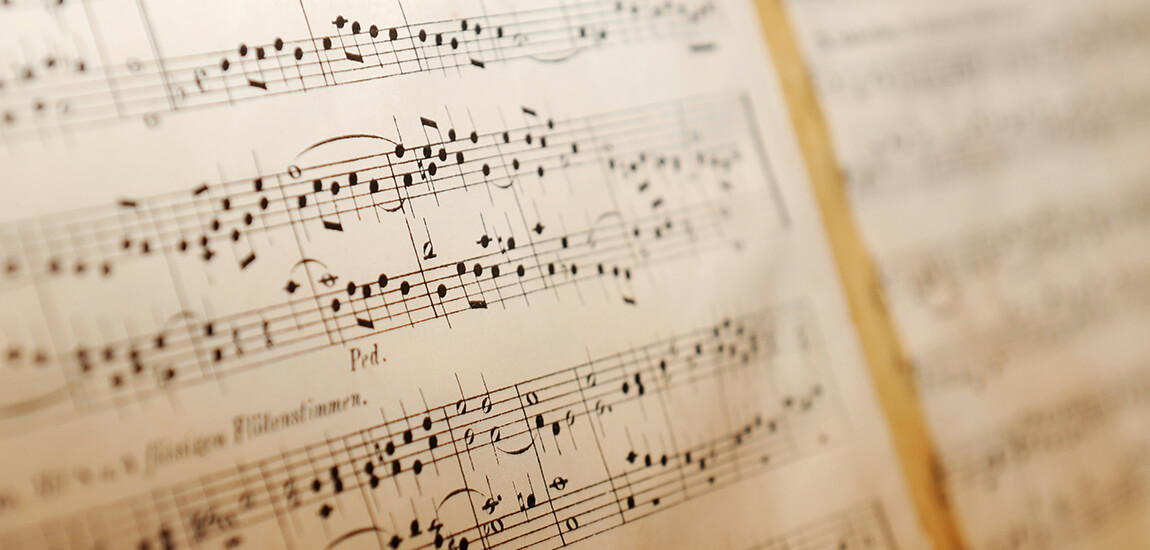A degree in music composition lays a foundation for graduate study or further experiences writing music in classical, sacred, educational, commercial, or film genres.
Auditions
Entrance auditions are required for this major. Auditions are during the spring semester. You must be admitted to both Northwestern and the Department of Music & Theatre to major in music. Please refer to the Music Admissions & Scholarships for audition requirements and dates.
Music composition may be the right degree for you if you
- enjoy vocal or instrumental music
- have a knack for songwriting
- are interested in a career in music
Why study music composition at Northwestern?
In small classes, learn from credentialed music faculty, seasoned performers, sought-after conductors, and acclaimed composers who are dedicated to your musical excellence.
You can perform at regional, national, and international tours while building your education. Christian faculty will help you to grow in your faith and your music. With campus so close to downtown Minneapolis and St. Paul, students can take advantage of opportunities in Minnesota’s thriving music industries.
The University of Northwestern – St. Paul is accredited by the National Association of Schools of Music, the principal U.S. accreditor for higher education in music.
Request Information
Careers in music composition
There are a variety of career and academic pathways that begin with a degree in music composition.
What types of work are related to this degree?
- Freelance composer or arranger
- Church worship leader
- Behind the scenes: audio, recording, production
- Concert promotion
- Concert hall management or administration
- Music program coordination
- Music critic
- Artist representation
- Arts administration or management
- Promotion/media relations
- Music librarian
- Commercial/advertising jingle writing
What will I learn?
You will learn to analyze, think critically, and compose sheet music.
MTC 4305
Analytic Techniques
A survey of standard analytical techniques applied to major forms from the Baroque through the Modern period. Includes an introduction to the analysis of 20th-century music: set theory, Schenkerian analysis and newer compositional techniques.
MTC 4209
Choral Arranging
A study of the technique of arranging music for voices.
MTC 4207
Orchestration
Study of the characteristics and capabilities of orchestral instruments as applied to composing, orchestrating and arranging.
MTC 1007
Music Theory Foundations
A study of the foundational concepts of music: pitch, rhythm, scales, modes, intervals, chords, and harmony with an introduction to notation software, piano, and singing.

Still have questions about this program or how to apply?
Our team is ready with answers!
Discover the School of Arts & Humanities
Professors at Northwestern are focused on their students first. Our faculty include experts in their respective fields who want to help you grow in your faith while you earn your degree.


